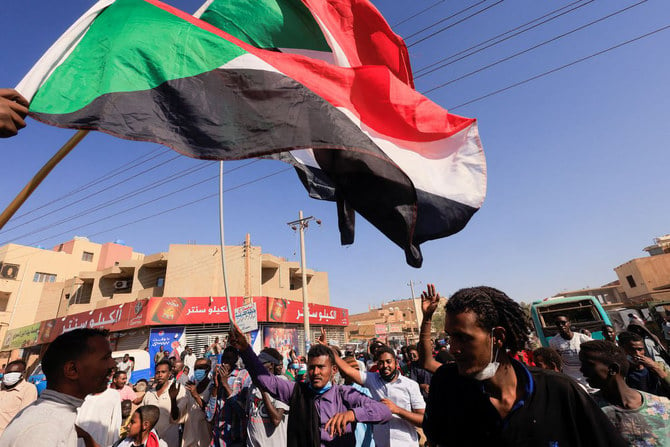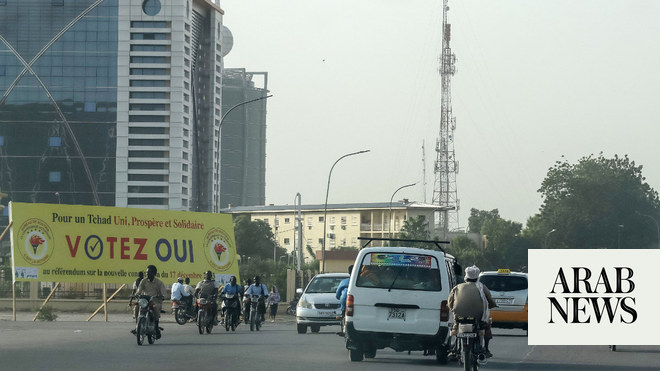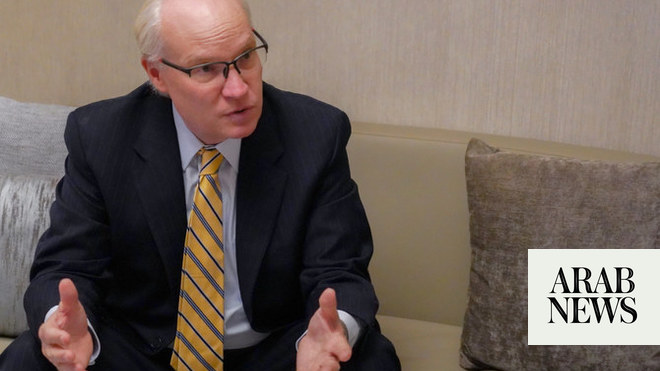
A four-day “final phase” of talks between the military and civilian powers in Sudan, which kicked off this week, should end with the adoption of a roadmap that delivers a nonpartisan civilian government that will prepare for general elections. The discussions, which are supported by the international community, will focus on issues related to dismantling the rump regime of Omar Bashir, transitional justice, reforming the military and security apparatus, and the problem of Eastern Sudan.
The consultations come less than a month after the ruling military council signed a framework agreement with the main civilian powers, chief among them the Forces of Freedom and Change. The deal was negotiated with the support of the tripartite mechanism of the African Union, the Intergovernmental Authority on Development, and the UN, in addition to Saudi Arabia, the EU, UAE, US, UK and Egypt.
All of these interlocutors praised the consultations, and called on all involved to hasten the process of forming a civilian government. More importantly for the Sudanese is the commitment made by the head of the Sovereignty Council, Gen. Abdel Fattah Al-Burhan, and his deputy, Gen. Mohamed Hamdan Daglo, known as Hemetti, that the military will return to the barracks and avoid any involvement in politics after handing over the running of the country to a civilian body.
A majority of the Sudanese people support the transition process, but there are those who oppose the framework agreement for collaborating with the military, which overthrew a civilian government last year. They blame the military for the killing of hundreds of unarmed civilians who protested against the coup. The Democratic Block of the FFC is leading the opposition, and has threatened to mobilize the street after severing talks with the group’s central bureau.
Still both the military and the civilian forces need to speed the shift to a civilian government so that international aid can resume. The economy is in tatters, while the problem in Eastern Sudan is festering. The Supreme Council of Beja Chiefdoms, which is against the Juba peace agreement, is now threatening armed rebellion against Khartoum, calling for a separate negotiating platform for self-determination for the region. The council has refused to take part in a workshop on Eastern Sudan, which the signatories of the framework agreement hoped would settle the crisis in the region.
Making things worse is the fact that some of these tribal heads appear to have joined forces with the Islamists associated with the Bashir regime. Breaking up the regime also poses challenges for both the military and civilian forces. How far should the dismantling go, and should it reach the top brass in the military, including Hemetti, head of the notorious paramilitary Rapid Support Forces?
The RSF, successor to the Janjaweed militia, which is accused of committing atrocities in Darfur, South Kordofan and Blue Nile, is also blamed for killing anti-coup protesters. Opponents to the framework agreement want transitional justice to exclude no one.
Sudan has suffered under three decades of authoritarian rule, and the sacrifices of the 2018-2019 revolution and what followed must not go to waste.
Osama Al-Sharif
The problem facing those negotiating with the military is that they have no other option. The FFC has trusted the military before, only to see it topple the government of Abdalla Hamdok last year.
In the end, the civilian forces will have to renew trust in the military that it will stay away from politics and allow a civilian government to lead the process of reuniting the country ahead of new legislative elections.
Much will depend on the outcome of the consultations. A roadmap with an effective timeline will have to emerge as soon as possible. Once a clear path is outlined, the same civilian forces must attempt to resume talks with those civilian powers that have rejected the framework agreement. The army has hinted that it is imperative that all civilian streams join the agreement. An attempt by the Democratic Block of the FFC to call for demonstrations will only weaken those who want to return the army to the barracks as soon as possible.
A cause for optimism is the fact that the process is supported by the international community, the African Union, UN, US and Sudan’s neighbors. Such commitment to helping the country overcome the challenges it faces is paramount. Sudan has suffered from three decades of authoritarian rule, and the sacrifices of the 2018-2019 revolution and what followed must not go to waste.
• Osama Al-Sharif is a journalist and political commentator based in Amman.
Twitter: @plato010
Disclaimer: Views expressed by writers in this section are their own and do not necessarily reflect Arab News" point of view












